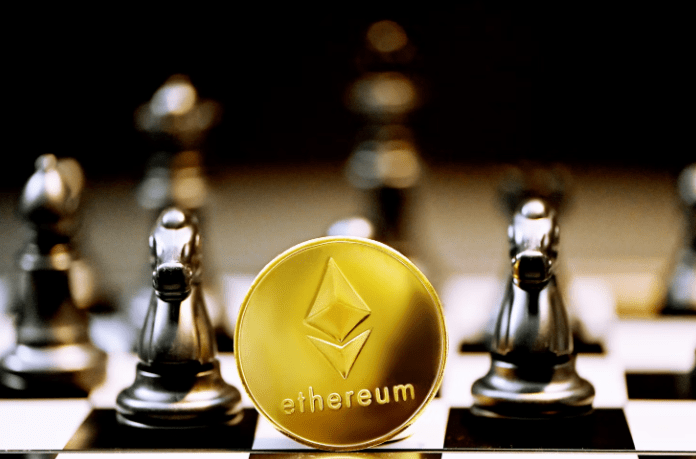Imagine a world where your prized in-game items, meticulously collected over years, are truly yours – ownable digital assets that transcend the boundaries of a single game and hold real value. Blockchain technology promises just that, a revolution poised to transform the gaming landscape.
However, before we all rush to sell our virtual estates and spaceships for a fortune (or hit the jackpot at FanDuel Casino with our crypto winnings!), let’s take a deep dive into the realities of blockchain in gaming. While the potential is undeniable, there are significant challenges and limitations to consider.
A Blockchain Primer: Decentralized Dreams
At its core, blockchain is a distributed ledger technology. Think of it as a giant, public record book that everyone can access but no one can tamper with. Every transaction – the buying, selling, or trading of digital assets – is recorded chronologically and securely on this ledger, creating an unfalsifiable record of ownership. This is what makes blockchain so attractive for the gaming industry.
Traditionally, in-game items like weapons, skins, or characters are owned by the game developer. You can’t truly own them; you only have a license to use them within the game’s ecosystem. Blockchain, however, allows developers to create these items as tradable tokens on a blockchain network. This means players can finally own their digital assets, with the ability to buy, sell, or trade them freely on marketplaces outside the confines of a single game.
The Allure of Blockchain Gaming: A Player-Centric Future
The potential benefits of blockchain in gaming are vast. Here are some key aspects to consider:
- Empowering Players: Blockchain grants players true ownership of their in-game assets. Imagine collecting rare items in an online RPG and being able to sell them on a secondary market for real-world value. This empowers players and potentially opens up new avenues for monetization.
- Enhanced Security: Blockchain’s inherent security makes in-game economies more robust. The tamper-proof nature of the technology minimizes the risk of fraud, hacking, or duplication of digital assets.
- Interoperability: Imagine using your hard-earned sword across multiple games! Blockchain can pave the way for interoperable assets, allowing players to use their items across different games built on the same blockchain network. This opens up exciting possibilities for a more unified and connected gaming experience.
The Reality Check: Challenges on the Road to Blockchain Nirvana
While the vision is enticing, the road to widespread adoption of blockchain in gaming is fraught with challenges. Here are some key obstacles to consider:
- Technical Hurdles: Current blockchain technology can be slow and energy-intensive. Integrating it seamlessly into existing game engines without compromising performance or creating lag is a significant hurdle.
- Scalability Issues: Gaming platforms can generate massive amounts of data. Existing blockchain networks might struggle to handle the sheer volume of transactions associated with a large player base.
- Regulatory Uncertainty: The legal and regulatory landscape surrounding blockchain and cryptocurrencies is still evolving. This uncertainty creates a hesitant environment for game developers who might be wary of integrating technology with unclear legal implications.
- The Price of Entry: Developing and integrating blockchain technology requires significant investment. Smaller studios or indie developers might be priced out of this new frontier.
The Skeptics Corner: Is it All Hype?
Some gamers and industry experts remain skeptical about the true value proposition of blockchain in gaming. Here are some concerns to consider:
- Focus on Monetization: Will the emphasis shift towards creating tradable assets for profit rather than focusing on core gameplay experiences?
- Pay-to-Win Concerns: Could blockchain exacerbate existing issues of pay-to-win mechanics, where players with more money can simply buy their way to success?
- Environmental Impact: The energy consumption of some blockchain networks is a major concern. Gamers might be hesitant to embrace a technology with a significant environmental footprint.
The Future of Blockchain Gaming: A Work in Progress
Despite the challenges, the potential of blockchain in gaming is undeniable. As technology evolves, scalability improves, and regulations become clearer, we can expect to see a more mature and integrated blockchain gaming experience emerge. Here are some potential future scenarios:
- Hybrid Models: A blend of traditional and blockchain-based in-game economies might emerge, offering players a choice between ownable assets and traditional models.
- Focus on Meaningful Ownership: The focus might shift towards creating truly unique and valuable in-game experiences that players can own and participate in.
- Rise of the Play-to-Earn Model: Blockchain could usher in a new era of “play-to-earn” games, where players can be rewarded for their time and effort with actual crypto tokens.
The Final Verdict: A Measured Approach is Key
Blockchain in gaming holds immense potential, but it is still in its early stages. A measured approach towards adoption and implementation is crucial to overcome the challenges and limitations associated with this revolutionary technology.
As gamers, let’s continue to educate ourselves about blockchain and keep an eye on its evolution in the gaming industry. Who knows, maybe one day we’ll all be able to truly own our virtual worlds! So don’t miss out on this exciting journey and stay tuned for more updates on the decentralized dreams of blockchain gaming.
Let’s keep dreaming big! So don’t miss out on this exciting journey and stay tuned for more updates on the decentralized dreams of blockchain gaming. Let’s keep dreaming big!







